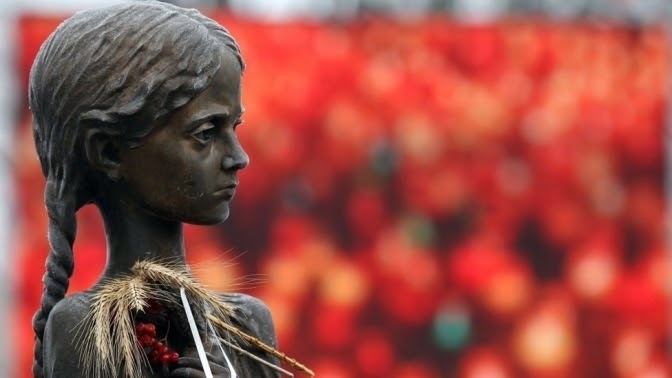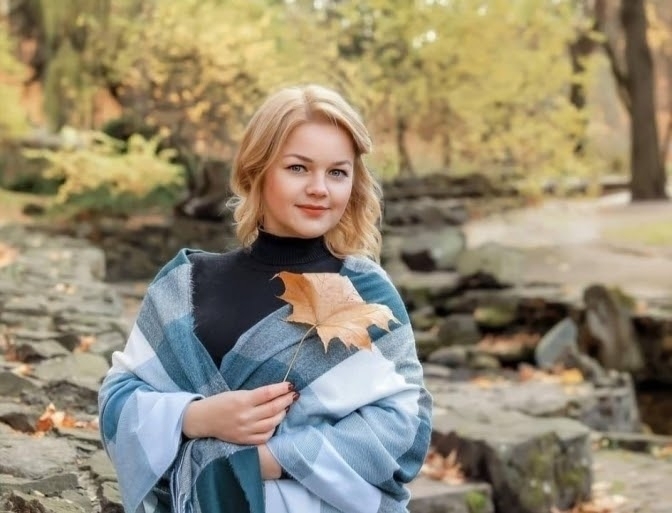

Your Guide: Iryna Bilynska: Creative English teacher and qualified tourist guide in Lviv
4 p.m... 27 November 2021, quite a warm and sunny day, although the end of autumn … a candle of remembrance is burning on the windowsill, a piece of bread is on a plate next to it …
The fourth Saturday in November is Holodomor Remembrance Day in Ukraine recalling a brutal act of genocide against Ukrainians, a term originally coined by a Lviv Jewish scholar. Traditionally, on this day, citizens attend a memorial service and lay symbolic pots of grain and candles at the monuments to victims of the Holodomor, meaning «to kill by starvation,» in Ukraine. At 16:00 they light candles around the city and honor the memory of the victims with a minute of silence.
If you visit the monument on Svoboda (Freedom) Avenue to famed Ukrainian writer Taras Shevchenko, you will see two features: The statue itself of Shevchenko and the symbolic « Wave of National Revival», which depicts the history of Ukraine. If you have a look at the back of the wave on which Shevchenko seems to ride, you will see exhausted bodies of already dead and dying people and a woman with a boy watching the death. It is this picture that reminds us of the tragedy of the 20th century – the Holodomor of 1932-33.
In the 20th century, Ukrainians survived three famines: 1921-1923, 1932-1933, and 1946-1947. The famine of 1932-1933, however, was the worst, and it is now called a genocide of the Ukrainian people committed by the Stalinist regime.
The leadership of the Soviet Union concealed the death of Ukrainians from artificial starvation. Only after Ukraine declared independence in 1991 did an investigation into the Holodomor begin and it now has been recognized as genocide at the legislative level and in court. According to historians, during 1932−1933, millions of innocent people fell victim to the famine in Ukraine caused by the administrative measures of the Soviet government.
At a time when Ukraine is commemorating the victims of the Holodomors, I would like to remember two alumni of the Lviv Law School, extraordinary personalities, who held leading positions in various United Nations bodies and who became the founders of the basic postulates of international law and the concept of human rights – Raphael Lemkin and Hersch Lauterpacht.
Raphael (Rafael) Lemkin – scientist, Holodomor researcher, was the first in the world to introduce the term «genocide» – for actions against a group of people united by a common trait. He was the first international law expert to call the crimes of the Stalinist communist regime against Ukrainians genocide and analyze it in the context of an international convention.
Sir Hersh Lauterpacht – a prominent international lawyer who played a major role in the preparation of the Nuremberg Trials and became the author of the definition «crime against humanity» – that is, the systematic destruction of a large group of people.
Hersh Lauterpacht was born 16 August 1897 in the town of Zhovkva, near Lviv, in a Jewish family. When Hersh was 13, the family moved to Lviv. He was a very capable boy and did well in the local gymnasium, read a lot, loved to study foreign languages, was able to express his thoughts clearly. As a teenager, he was interested in politics and religion.
Peers considered him a leader. In 1915, Lauterpacht entered the Faculty of Law at Lviv University and soon moved to Vienna, where he continued his studies, as it was dangerous to stay in Lviv due to anti-Semitic sentiments. In 1923 Lauterpacht moved to Great Britain, where he also studied, and in 1938 became a professor at Cambridge University.
After World War II, Lauterpacht took part in the Nuremberg Trials as a legal adviser to the British and American representatives at the trial.
He was a member of the UN Commission on International Law since 1952 and a member of the UN International Court of Justice in The Hague since 1955. In addition, Hersh was a member of the British Academy of Sciences and the Institute of International Law. For significant services, Queen Elizabeth II bestowed upon Hersh Lauterpacht the title of Knight in 1956.
Sir Hersh died at the age of 63, and the Lauterpacht Center for International Law was named after him at Cambridge University.
Rafal Lemkin was born on 24 June 1900, in the village of Bezvodne to a Jewish family near the ancient Russian city of Volkovysk in the Grodno province of the Russian Empire (the territory of modern Belarus).
He graduated from the Faculty of Philology of Lviv University, studied philosophy in Germany. He returned to Lviv in 1926, where he successfully obtained a second education – law (1928).
In the 1930s, as part of scientific research into the tragedy of the extermination of Armenians by the Turks, Lemkin formulated the term «crimes of barbarism» as a legal term, which he later changed to «genocide», which gained international recognition and was used by the Nuremberg Trials.
During World War II, Lemkin lost his entire family, so he left Poland and went to the United States.
In 1950 and 1952 he was nominated for the Nobel Peace Prize. He maintained friendly relations with the Ukrainian diaspora in the United States. In 1953, at the Holodomor Remembrance Evening, he delivered a report calling the crimes of the Stalinist regime not just mass murders, but genocide against the Ukrainian nation, which was divided into four components: the destruction of the Ukrainian intelligentsia, the liquidation of the autocephalous church, the Holodomor and the settlement of Ukraine. other ethnic groups for a radical change in population.
Lemkin died on 28 August 1959 in New York.
You can read more about Lemkin and Lauterpacht in the book «East West Street: On the Origins of ‘Genocide’ and ‘Crimes Against Humanity,’ by Philippe Sands, a grandchild of a Leopolitan.
Iryna Bilynska is an English teacher at a Lviv secondary school, a qualified tour guide, and mother of three kids. Her hobbies are singing and dancing. You can follow her on Facebook.
To receive our weekly email digest of stories, please follow us on Substack. You can follow Lviv Now on Facebook and Instagram.
Lviv Now is an English-language website for Lviv, Ukraine’s «tech-friendly cultural hub.» It is produced by Tvoe Misto («Your City») media-hub, which also hosts regular problem-solving public forums to benefit the city and its people.












